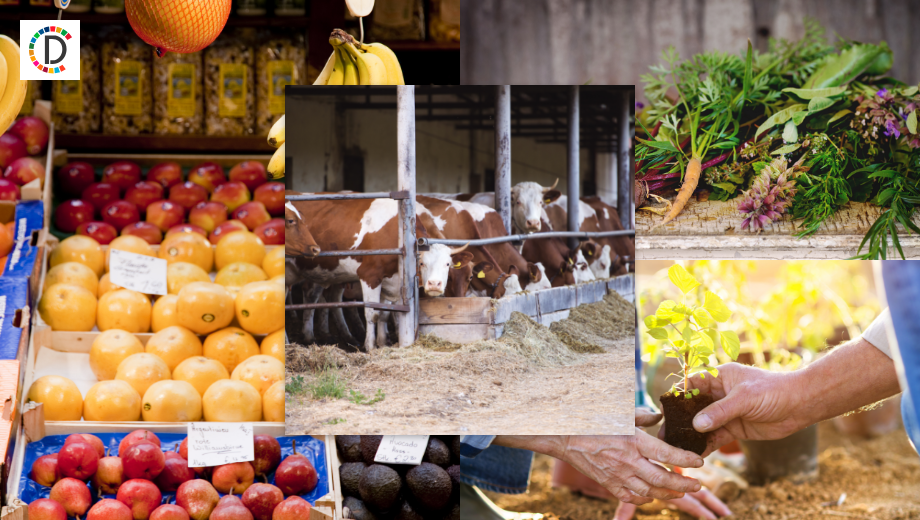This FPO in MP making women farmers visible face of agriculture

Breaking barriers, women farmers from 16-odd villages in this district, who were facing a lot of hardship and not getting recognition of their labour at home and in the farm field, have now set up an all-female farmer producers company to collectively buy inputs and market their crops.
The 'Shipre Farmer Producer Company Ltd (SFPCL)' with 650-odd members from 16 active villages was established on November 25, 2021 after three years of training and support under a CSR programme.
In 2019, multinational alcohol beverage company Pernod Ricard India had launched CSR programme 'Water, Agriculture and Livelihood (WAL)' in partnership with local NGO SRIJAN (Self-Reliant Initiatives through Joint Action).
''We started the WAL initiative primarily to cater to the scheduled tribes (ST) and scheduled caste (SC) population which did not have access to water. The first aspect was to get these farmers to take a second crop. We helped them to get water by constructing ponds, Doha structures, etc. so that they harness water,'' Sashidhar Vempala, CSR and Sustainability Head at Pernod Ricard India told PTI.
The second aspect was helping farmers understand how multi-cropping will increase their income and improve their lives. They were encouraged to form Self Help Groups (SHGs), Women Producer Groups (WPGs) and then a farmer producer company (FPO) to take advantage of collective effort, he said.
''It is not just about increasing disposable income and livelihood, it is also about getting women out of the four walls and making them part of the development of a local ecosystem. That's why WAL went beyond water, agriculture and livelihood into an ecosystem of rural development,'' Vempala added.
Under the WAL programme, 92 ponds, one each of pond-like structure called 'Doha' model and check dam, were built in most-water stressed areas in 11 villages, according to SRIJAN Team Lead Sharique Mahmood.
Women farmers were taught about the importance of multi-cropping; good agricultural practices like line-seeding and natural farming; post-harvest practices like grading besides marketing, Mahmood added.
Sharing her success story, a woman farmer belonging to Sahariya tribe in Naguli village, Rukma Adivasi (45), said: ''I used to grow groundnut and urad with the help of monsoon rains in kharif season and migrate for work during the rabi season. A pond has been dug in the field and with that water I have been growing rabi crops wheat and gram for the last three years.'' Ramvathi Kewat (40), another woman farmer from Naguli village, too is taking two crops thanks to construction of a 'Doha' structure along the (nala) stream. This kind of structure helps arrest flow of water during monsoon, thus creating additional water potential.
Both Kewat and Adivasi have stopped migrating for work to Indore, Gwalior, Agra and other cities in neighbouring Madhya Pradesh. Now, they sell their produce to the FPO.
Some of the women farmers have started doing line-seeding, adopting multi-cropping methods and new farm practices including natural farming.
''After shifting to natural farming, I have stopped using chemical fertilisers like urea and DAP. I make my own vermicompost and jeevamrutha (natural liquid fertilizer). The fertiliser cost has reduced and I am getting better rate selling through our FPO,'' says Leelavati Pal from Barodi village, a member of SFPCL.
With these learnings, some of the women farmers have emerged as crucial drivers of change and become the board of directors at SFPCL.
According to Bharati Lodi (21), a woman farmer from Sirsona village and a board of director in SFPCL, says, ''Earlier, I used to work in the farm field with my husband, but was never involved in the farming related decisions. After getting the training in good agricultural practices, my husband acknowledges my knowledge.'' Anguri Lodi (32) who is in-charge of a village collection centre in Barodi village for SFPCL, says, ''We never knew the price was determined by size and quality of the grain. We learnt this and now use machines to grade the produce scientifically and accordingly fix the price. This was an eye opener for us.'' With collective procurement, the FPO has been able to trade in volume and negotiate better rates. The FPO now gets mandi auction rates through SMS, she added.
Groundnut and phalas (non-timber forest produce) were two crops sold through the FPO in the kharif season, while mustard and wheat during rabi season.
The male farmers of the family have realised the benefits of this new knowledge and have started respecting the women and acknowledging their contribution in agriculture.
Now, SFPCL is confident of operating on its own as Pernod Ricard India has made an exit from its CSR initiative from this district early this year.
The central government has launched a scheme to establish 10,000 new FPOs in the country with a budgetary provision of Rs 6,865 crore.
(PTI correspondent visited the district on invitation by Pernod Ricard India) PTI LUX MJH MR ANU ANU
(This story has not been edited by Devdiscourse staff and is auto-generated from a syndicated feed.)










